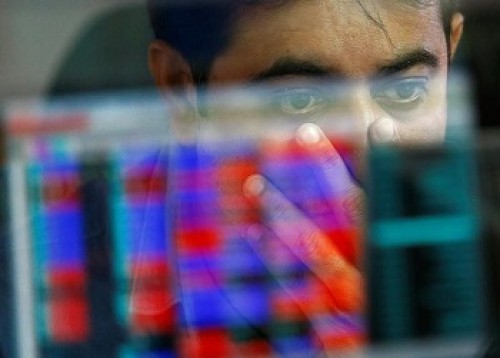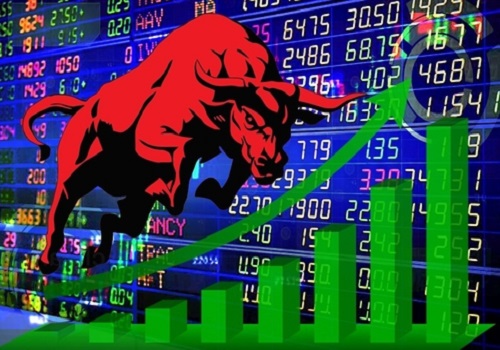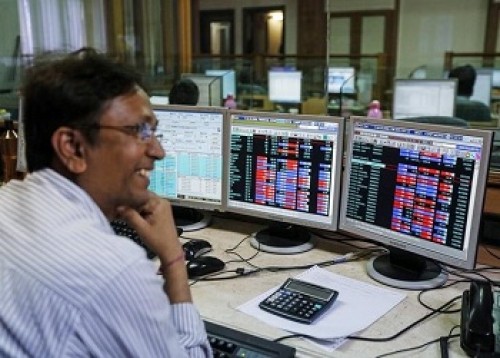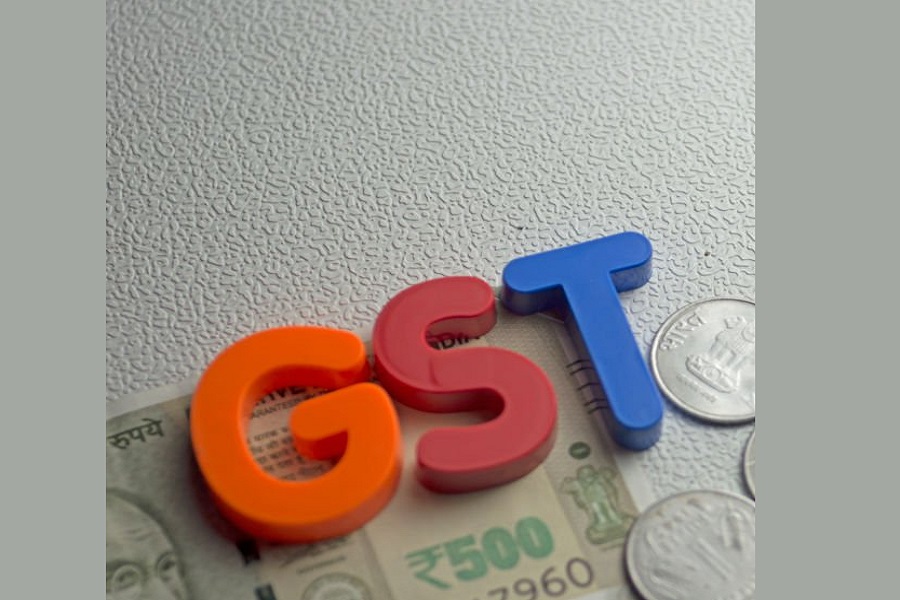Equities extend losses to third straight day amid F&O expiry

Indian equity benchmarks closed with losses on the monthly futures & options expiry session, marking the third straight day of losses, weighed by Banking, Metal and Telecom stocks. Indian markets opened on a flat note, as India recorded a spike of 23,139 new Covid-19 cases in the past 24 hours. The country also witnessed 309 deaths, taking the death toll to 448,090. Some concern also came as finance ministry stating that India’s external debt rose modestly by 2.1 per cent year-on-year to $570 billion as of March-end 2021, notwithstanding the COVID-19 pandemic. It said reserves to external debt ratio, however, increased to 101.2 per cent from 85.6 per cent during the same period, thereby consolidating the country’s position as a net creditor to the world. However, key indices erased losses and managed to trade in green terrain in late morning session, taking support from Chief Economic Adviser (CEA) K V Subramanian’s statement that India will clock over 7 per cent annual growth during this decade on the back of strong economic fundamentals. During the current fiscal, he said, growth would be in double-digits and it could moderate to 6.5 - 7 per cent in the next financial year.
However, buying proved short-lived as markets once again slipped into red terrain in late afternoon session. A continuously depreciating rupee, which tumbled for the fifth straight day against the US dollar, weighed on sentiment. Traders overlooked Apparel Export Promotion Council (AEPC) Chairman A Sakthivel’s statement that the government's decision to expand the scope of the Rs 4.5 lakh crore Emergency Credit Line Guarantee Scheme (ECLGS) to support micro, small and medium enterprises would help deal with funds shortage and promote exports. Investors also paid no heed towards Commerce and Industry Minister Piyush Goyal’s statement that India and the US should engage in a much bigger way and New Delhi is ready and willing to expand the economic partnership with America. Meanwhile, in order to increase utilisation of the Emergency Credit Line Guarantee Scheme (ECLGS) and provide support to small businesses ahead of the festive season and economic upturn, the government has expanded the scheme by increasing the borrowing limit for availing loans.
On the global front, Asian markets settled mostly higher on Thursday after the U.S. Senate announced it would vote on a stopgap funding bill later in the day to prevent a government shutdown. Inflation and tightening concerns persisted despite Federal Reserve Chair Jerome Powell and his counterparts at the European Central Bank, Bank of Japan and Bank of England voicing cautious optimism that supply-chain disruptions lifting inflation rates around the world would ultimately prove temporary. European markets were trading mostly in green after U.S. Senate Majority Leader Chuck Schumer said that Senators have reached a deal to avoid a government shutdown on October 1. Back home, on the sectoral front, real estate industry stocks were in focus with a private report that housing sales have jumped over two-fold during July-September period at 62,800 units across seven major cities on better demand driven by low mortgage rates and hiring in IT/ITeS sector. Automotive sector were in watch as Union Minister for Heavy Industries Mahendra Nath Pandey said India would become a manufacturing hub and the automotive sector will play a major role in making the country a $5 trillion economy.
Finally, the BSE Sensex fell 286.91 points or 0.48% to 59,126.36 and the CNX Nifty was down by 93.15 points or 0.53% to 17,618.15.
The BSE Sensex touched high and low of 59,557.24 and 59,019.28, respectively and there were 8 stocks advancing against 22 stocks declining on the index.
The broader indices ended in green; the BSE Mid cap index rose 0.33%, while Small cap index was up by 0.56%.
The top gaining sectoral indices on the BSE were Realty up by 1.54%, Consumer Durables up by 1.03%, Utilities up by 0.60%, Power up by 0.50% and Healthcare up by 0.38%, while Bankex down by 0.99%, Metal down by 0.91%, Telecom down by 0.75%, TECK down by 0.68% and IT down by 0.59% were the top losing indices on BSE.
The top gainers on the Sensex were Bajaj Finserv up by 2.19%, Bajaj Finance up by 2.05%, NTPC up by 0.92%, Sun Pharma up by 0.82% and Hindustan Unilever up by 0.60%. On the flip side, Power Grid Corporation down by 2.67%, Asian Paints down by 2.34%, Axis Bank down by 1.87%, Bajaj Auto down by 1.69% and SBI down by 1.53% were the top losers.
Meanwhile, Chief Economic Adviser (CEA) K V Subramanian has said that India will clock over 7 per cent annual growth during this decade on the back of strong economic fundamentals. During the current fiscal (FY22), he said, growth would be in double-digits and it could moderate to 6.5 - 7 per cent in the next financial year.
Subramanian said ‘when you look at the data itself actually, the V shaped recovery and quarterly growth patterns actually established that the fundamentals of the economy are strong...the kind of reforms that we've done on it, and the supply side measures that we've taken will enable strong growth not only this year but going forward as well.’ He also said ‘this decade will be India's decade of inclusive growth. In FY'23, we expect growth to be between 6.5 to 7 per cent, and then accelerating further as the impact of these reforms are seen. On average, I expect growth to be greater than 7 per cent in this decade for India’.
CEA also pointed out that the government is putting a lot of emphasis on capital expenditure as it has a multiplier effect. He noted that the Union Budget for 2021-22 has provided a capital outlay of Rs 5.54 lakh crore, an increase of 34.5 per cent over the Budget Estimate of 2020-21. It also said the Budget estimate of capital expenditure for FY2020-21 was Rs 4.12 lakh crore.
The CNX Nifty traded in a range of 17,742.15 and 17,585.35 and there were 9 stocks advancing against 40 stocks declining, while 1 stock remain unchanged on the index.
The top gainers on Nifty were Bajaj Finance up by 2.11%, Bajaj Finserv up by 2.11%, Tata Motors up by 1.04%, NTPC up by 0.82% and Sun Pharma up by 0.80%. On the flip side, Power Grid Corporation down by 2.82%, Asian Paints down by 2.26%, Shree Cement down by 2.15%, Axis Bank down by 1.95% and Eicher Motors down by 1.91% were the top losers.
European markets were trading mostly in green; UK’s FTSE 100 increased 19.06 points or 0.27% to 7,127.22 and France’s CAC rose 7.27 points or 0.11% to 6,568.07, while Germany’s DAX decreased 37.07 points or 0.24% to 15,328.20.
Asian markets settled mostly higher on Thursday after the US Senate announced it would vote on a stopgap funding bill later in the day to avert a government shutdown, while inflation and tightening concerns persisted. Chinese shares ended higher even after the release of mixed economic data. China’s official manufacturing PMI for September came in at 49.6, while Caixin/ Markit manufacturing PMI for the month rising to 50 for the month as compared with August's reading 49.2. Hong Kong shares declined as investors continued to monitor the situation at China Evergrande Group. Reports showing that China Evergrande Group missed paying bond interest due on Wednesday. Japanese shares ended a tad lower after the release of disappointing retail sales and factory activity data.
Above views are of the author and not of the website kindly read disclaimer










Tag News
More News

Quote on Market 28th August 2025 from Vinod Nair, Head of Research, Geojit Investments Limited

.jpg)







